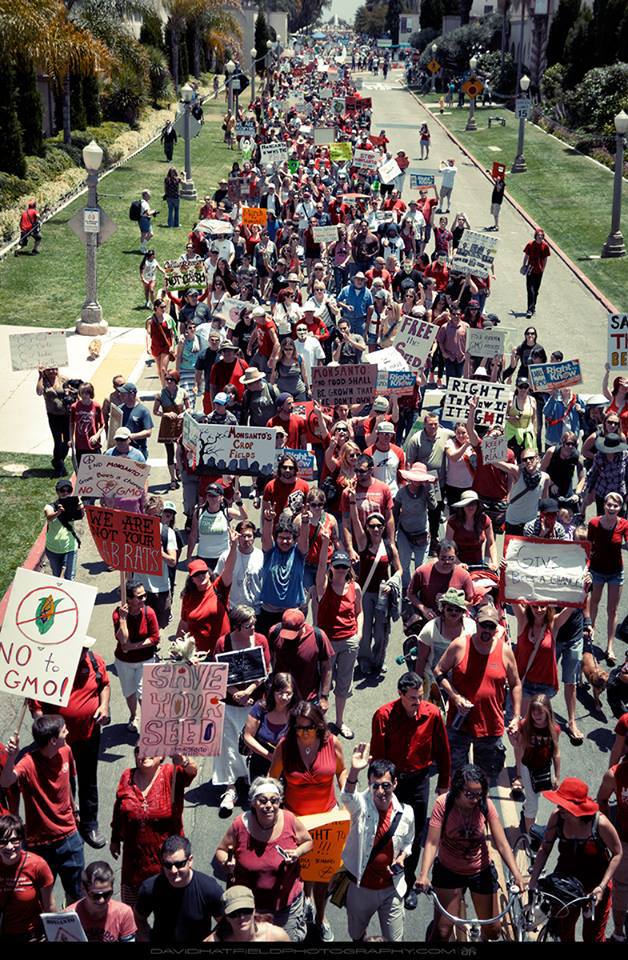from the Editors
May 29, 2013
“Today, the food and agricultural model we have serves the interests of private companies. It is a model that puts the interests of the food industry and interests of capital before the needs of the people and respect for the ecosystem.” – Esther Vivas

Thousands of people across the US marched against Monsanto on May 25, 2013
Last weekend, hundreds of thousands of people across the US and 51 other countries participated in the “Global March Against Monsanto,” an effort to raise awareness about the negative effects of Genetically Modified Organisms (GMOs) and overall corporate control of the food system.
This comes just a few months after President Obama signed what is being referred to by activists as the “Monsanto Protection Act,” a lobbyist-authored provision inserted into a spending bill which bars federal courts from being able to stop the sale or planting of GMOs and genetically engineered seeds. In another move that favored Monsanto (and helped to inspire participation in the march), the US Supreme Court ruled unanimously last Monday that farmers who use patented seed for more than one planting in violation of their licensing agreements are liable for damages to corporations like Monsanto.
Like an ExxonMobil or Walmart, Monsanto is a corporate behemoth that, due to its global scale and widespread political connections, embodies the worst of its industry and seems to get away with whatever it wants and at any moment. The problems, however, go much deeper than just one company, no matter how large or influential. They are generated by the basic dynamics of capitalism and imperialism, which ensure that food remains nothing more than a commodity, that hundreds of millions of people in the Global South starve, even while producing a majority of the world’s food, and that the planet’s value is only determined by it’s ability to be exploited and destroyed by capitalist enterprises.
In the video below, Esther Vivas explains the mechanics of the capitalist food and agricultural system, which she criticizes for being a “generator of hunger in a world of abundance.” She outlines its effects on climate change, loss of agricultural diversity, the use of GMOs, oil-dependency, and lack of people’s “food sovereignty.”
This is essential viewing for anyone involved in the struggle for ecological sustainability and an end to hunger and malnutrition.
Video courtesy of “MECÁNICA DEL MURO.” For subtitles in English, click the Closed Captioning (CC) button at the bottom of the video.
Read more from Esther Vivas:
- “Without Women, No Food Security”
- “No More ‘Green Capitalism’: An assessment of the failure of the Durban summit on the climate,” with Josep Maria Antentas
- “Anti-Capitalism and Climate Justice”
Esther Vivas is a member of Izquierda Anticapitalista in the Spanish state and author of “Del campo al plato,” among numerous other articles and books on the food system.
